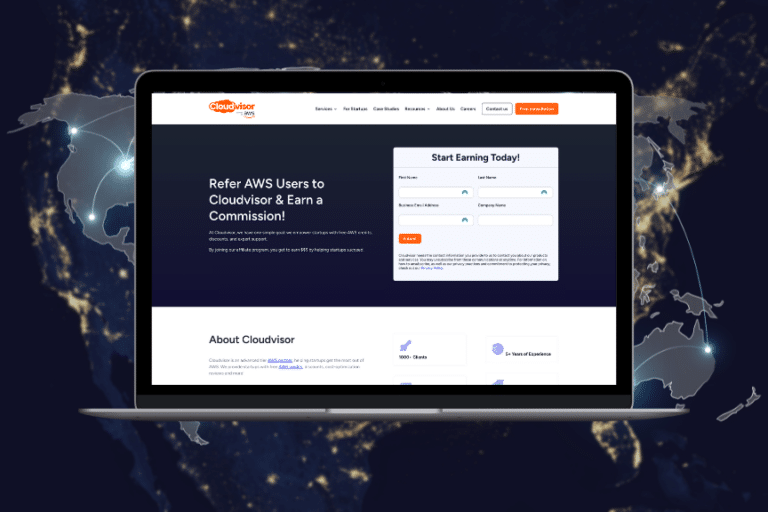Today, the concept of ‘the cloud’ is integral to modern computing and technology. But what is the cloud? This term, often used in tech and business conversations, refers to a technology that, through the Internet, allows for data, control, and processing rather than on a local computer or server. The article will elucidate the meaning of cloud computing by detailing what it does, its benefits, and why it is quintessential for business, especially for startups.
Table of Contents
What is the Cloud?
In simple terms, cloud computing involves deploying groups of remote servers and software networks that allow centralized data storage and online access to computer services or resources. It is a transformative technology that allows various computing services—including servers, storage, databases, networking, software, and analytics—over the Internet. This model enables companies to avoid the upfront cost of owning and maintaining physical IT infrastructure. Instead, they pay only for the computing resources they use. The cloud provides flexible resources, rapid innovation, and economies of scale, making it an essential solution for businesses looking to enhance efficiency and support scalability in a competitive market.
Cloud Deployment Models
Cloud computing is not a one-size-fits-all solution; it offers different deployment models to cater to the specific needs of businesses. These models, known as public, private, and hybrid clouds, each provide unique benefits and are chosen based on organizational requirements and objectives. Here’s a closer look at each of these cloud deployment models:
- Public clouds are owned and operated by a third-party cloud service provider delivering their computing resources, such as servers and storage, via the Internet. Examples of public clouds include Microsoft Azure, Amazon Web Services (AWS), and Google Cloud.
- Private cloud is computing services availed either via the Internet or a private internal network to select users and not to the general public.
- Hybrid cloud combines a public and private cloud bound together by technology that enables data and applications to be shared between them.
Key Technologies Behind the Cloud
In the context of cloud computing, virtualization technology is what makes it function. Virtualization is the creation of a simulated, digital-only “virtual” environment that acts like a physical computer. This virtual machine can run programs and store data just like a physical computer but is actually hosted on a server along with, potentially, many others. Virtualization technology enables cloud providers to offer a highly scalable and efficient service since many virtual machines can run on a single server without interfering with each other.
Services in the Cloud
Cloud services are provided on a very vast plane, which can be categorized broadly into three layers:
- Infrastructure as a Service (IaaS) is the most fundamental category of cloud computing services. With IaaS, you rent IT infrastructure—servers and virtual machines (VMs), storage, networks, operating systems—from a cloud provider on a pay-as-you-go basis.
- Platform as a Service (PaaS) makes it easier and more efficient to build, customize, and deploy applications. PaaS offers a framework designed for developers, giving them all the tools needed to build and host web applications.
- Software as a Service (SaaS) provides a complete software solution that you purchase on a pay-as-you-go basis from a cloud service provider. You essentially rent the use of an app for your organization, and your users connect to it over the Internet, usually with a web browser.
Benefits of Cloud Computing
The benefits of cloud computing are multi-dimensional and touch various aspects of a business:\n\n
- Cost-Effectiveness: Cloud computing allows companies to bypass the upfront cost and complexity of owning and maintaining their own IT infrastructure. Instead, they just pay for what they use and only when it’s needed.
- Agility and Flexibility: The cloud offers unmatched flexibility and agility in managing IT resources. Companies can deploy resources in minutes and scale up or down, based on demand, thereby enabling them to react faster to changes and opportunities. This flexibility is very important in a digital age where speed to market could be a critical competitive advantage.
- Wide Range of Services: Cloud computing provides access to a broad spectrum of technologies that can be deployed, scaled, and fine-tuned without large upfront investments. This availability supports innovation and equips businesses with the tools to experiment and explore new project ideas at a low cost and low risk.
- Global Scale: One of the most critical benefits of cloud computing is being able to scale elastically. In the cloud, you have access to a wide range of global cloud regions and services that enable you to provision resources in closer proximity to your end-users, reducing latency and improving their experience while keeping a lower cost.
- Improved Productivity: On-premise traditional computing generally involves racking and stacking, or hardware setup and software patching, and other time-consuming IT management chores. Cloud computing removes the need for many of these tasks so that IT teams can spend more time on achieving more significant business goals.
Cloud Computing and Business Operations
Integration of cloud computing into your business is not one of those nightmares. It all starts by understanding your business needs and determining which part of your operations could benefit most from cloud services. Cloud computing can be adopted in a phased manner, starting with one cloud service, and then increase it further when there is comfort with the technology. For those companies who are very serious about security and data sovereignty, private or even hybrid cloud environments offer middle grounds that grant cloud benefits while simultaneously keeping control of the data in hand.
Overcoming the Challenges
There are a number of challenges that pose problems to businesses when it comes to the adoption of cloud computing. Data security, compliance, and loss of control over some IT services are major considerations for many businesses. However, with the right cloud provider, many of the concerns that businesses might have can easily be cleared. This is because providers like AWS are able to provide robust security features that often outdo the on-premises capabilities, coupled with comprehensive compliance certification and management tools that make it easier for businesses to secure their data and comply with global regulations.
Conclusion
Cloud computing has completely changed the IT horizon by offering businesses a powerful tool to enhance efficiency, foster innovation, and respond more agilely to the needs of customers. As cloud technologies continue to change and mature, they promise to offer even more capabilities, ensuring they remain essential tools in business operational strategies. Cloud computing is thus a means by which companies of all sizes are able to compete in ever-evolving markets both effectively and efficiently, thus ensuring survival in the digital age.






